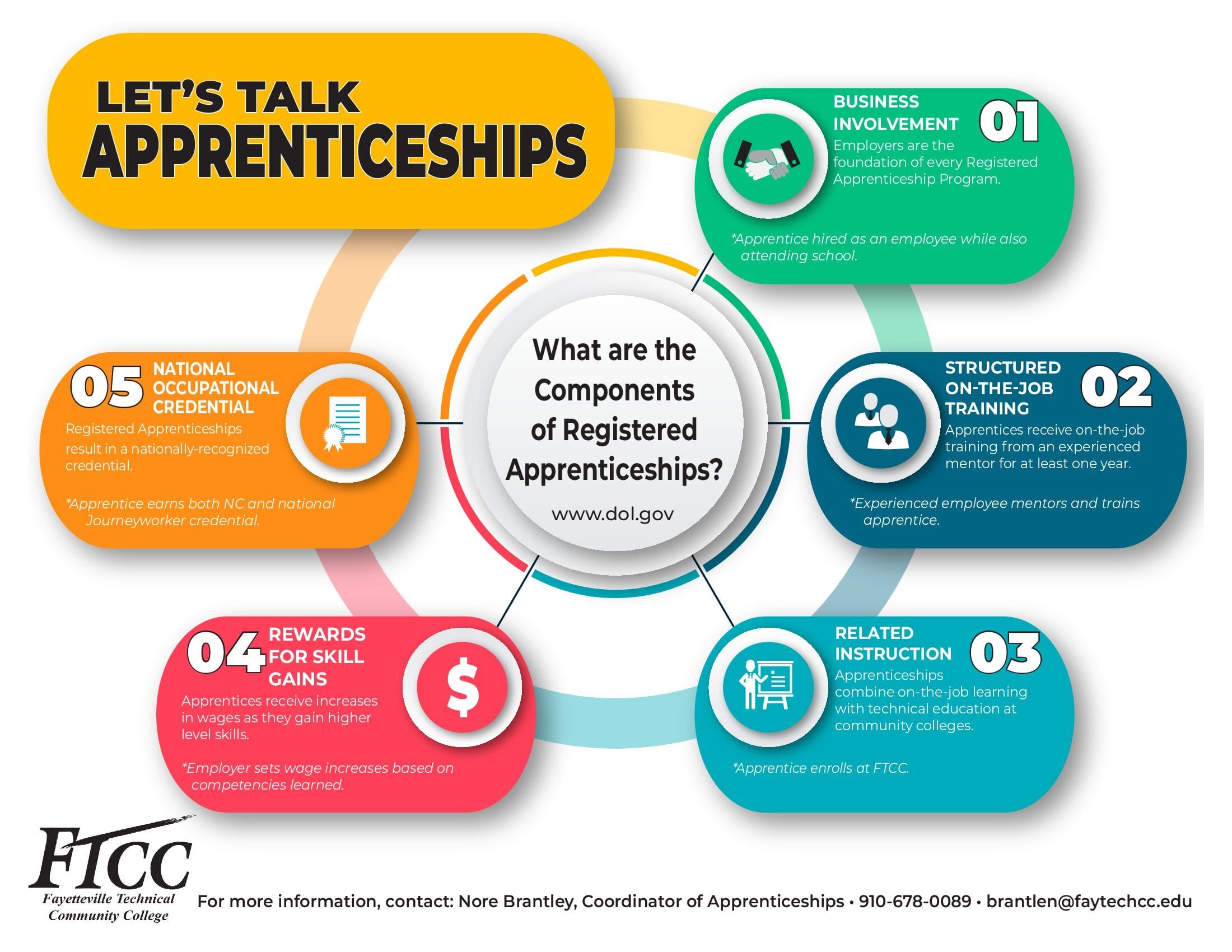
As many businesses struggle to maintain their numbers throughout a nationwide labor shortage, it’s important for employers to be aware of the many talented individuals looking for work and the programs in place to connect aspiring professionals with jobs in their interest.
Nore Brantley, Apprenticeship Coordinator at Fayetteville Technical Community College, is passionate about raising awareness as to how registered apprenticeships provide staffing solutions for businesses who are struggling to recruit and hire employees.
There are over 1,300 occupations that are “apprenticeable.” Apprenticeships require a minimum of one year of on-the-job learning or 2,000 hours.
Apprentices in North Carolina must be enrolled in courses relevant to their work. They can be in a degree program or in a certificate or diploma program. There are also short-term training programs and options for those continuing their education.
“An apprentice makes a better troubleshooter because they don't just understand what the piece of equipment does, but they understand the theory behind it because they've studied that in their related instruction,” remarked Brantley.
A key difference between an internship and an apprenticeship is that an internship might end with a job offer whereas an apprenticeship begins with a job offer. Additionally, apprentices receive a nationally recognized credential upon the completion of their two-year program.
Apprentices are paid on a progressive wage scale as their skills increase, in turn reducing operational costs and promoting existing employees. There are no fees attached to registering an apprenticeship program in North Carolina.
Qualifying businesses are able to access additional incentives as well.
For businesses that have 500 employees or less and operate in a tier 1 county such as Cumberland County, in an effort to bring more young people into the workforce, there is grant funding available to those who bring in apprentices 25 years and younger in a qualifying occupation.
Funds available include:
“We don’t want this money to just sit here. We want it to go to businesses. Let’s help pay for young people to go to college. Let’s help offset costs for employers. Let’s get 50 percent wage reimbursement. This money is earmarked for apprenticeships, let’s spend it,” shared Brantley.
Any business interested in learning more about bringing on an apprentice can reach out to Nore Brantley via email brantlen@faytechcc.edu or phone (910) 965-2750.

Kristen Botts co-founded the program with her husband, Nathan Botts, who is a Veteran himself. Photos provided by Kristen Botts.An organization helping Veterans live a full life after their service in the U.S. Military wants to connect Veterans and d

Patrick NoblesHuntington Bancshares Incorporated announced on Feb. 2 that it has closed its merger with Cadence Bank, a regional bank headquartered in Houston, Texas and Tupelo, Miss. This strategic partnership accelerates Huntington’s growth in

There is extensive dialogue surrounding Fayetteville as a travel destination or city aimed at recruiting new businesses and new residents. As someone who moved here from out of state, I thought it could be fun to share my personal experience as